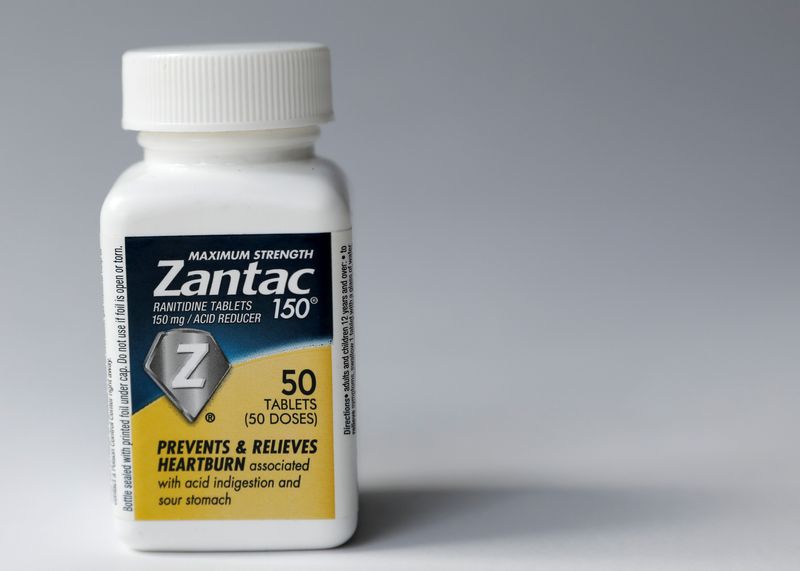Plaintiff in first Zantac lawsuit set for trial drops case
2022.08.17 01:02
2/2

FILE PHOTO: A bottle of Zantac heartburn drug is seen in this picture illustration taken October 1, 2019. REUTERS/Brendan McDermid/Illustration
2/2
By Brendan Pierson
(Reuters) -The plaintiff in the first lawsuit over the heartburn drug Zantac scheduled to go to trial has agreed to drop his case, according to his attorney and drugmakers named as defendants.
The news on Tuesday came days after shares of GlaxoSmithKline (NYSE:GSK) Plc, Sanofi (NASDAQ:SNY) SA, Pfizer Inc (NYSE:PFE) and Haleon Plc were hit by investor concerns about thousands of lawsuits claiming the drug, which U.S. regulators pulled from the market in 2020, causes cancer.
The first trial in one of those lawsuits had been scheduled to begin next Monday in Illinois state court. The plaintiff, Joseph Bayer (OTC:BAYRY), alleged that he developed esophageal cancer from taking over-the-counter Zantac.
Alexandra Walsh, an attorney for Bayer, said her client could not proceed for “personal health reasons” but had the right to refile his case within a year.
GSK said in a statement that it welcomed the decision and that the “overwhelming weight of the scientific evidence” showed no link between Zantac and cancer.
Boehringer Ingelheim, also a defendant in the case, said it was pleased the case had been dropped and “will continue to defend these meritless claims questioning the safety of Zantac.”
Zantac, originally marketed by a forerunner of GSK, has been sold by several companies since the loss of patent exclusivity in the late 1990s, including Pfizer, Boehringer Ingelheim and Sanofi. Haleon, spun out as an independent company last month, comprises consumer health assets once owned by GSK and Pfizer.
The 2020 recall followed an investigation by the U.S. Food and Drug Administration into whether Zantac’s active chemical, ranitidine, causes levels of a probable carcinogen N-nitrosodimethylamine (NDMA) to rise in users’ bodies.
About 2,000 lawsuits are consolidated in federal court in West Palm Beach, Florida, where a hearing on what expert evidence will be allowed in trials is scheduled for next month.








